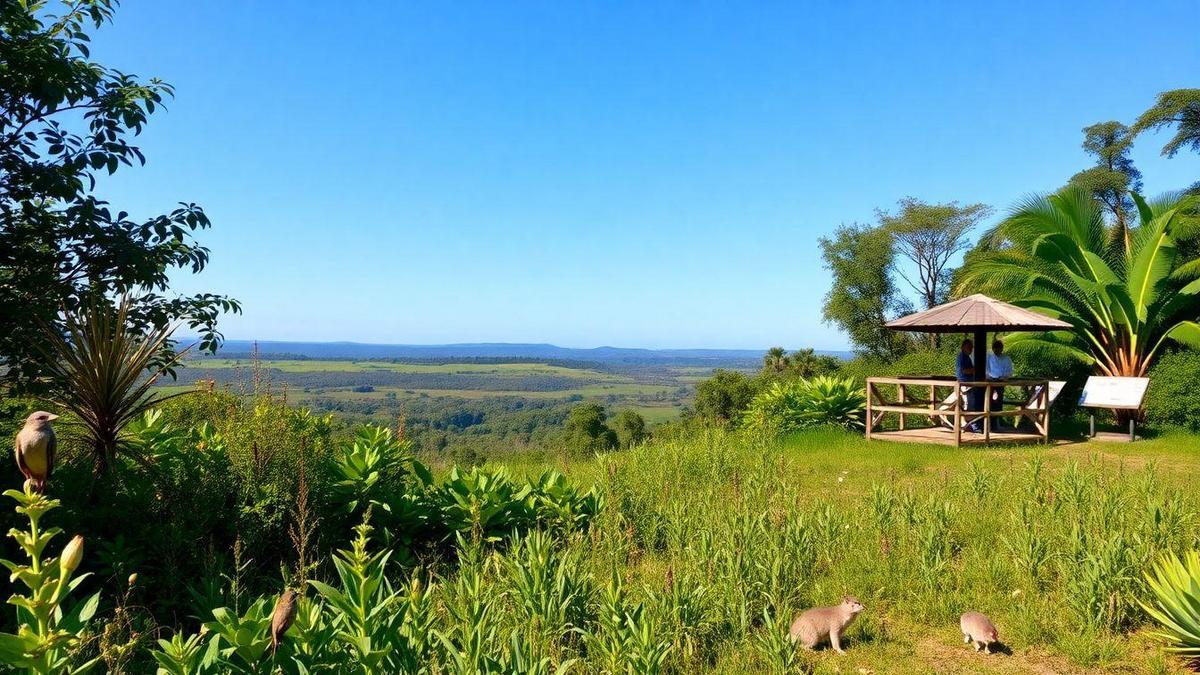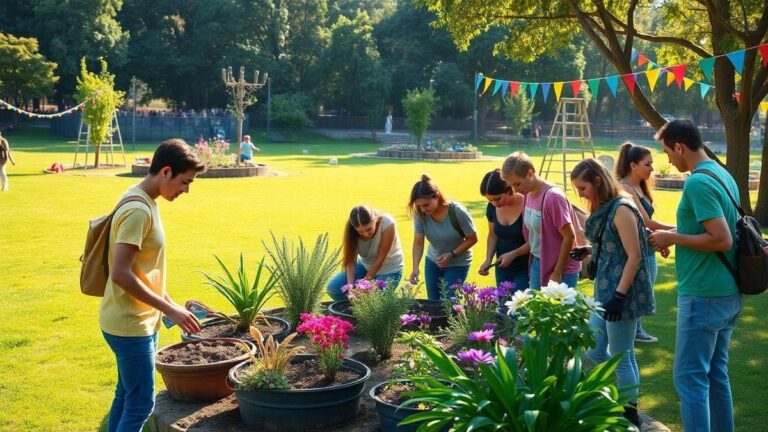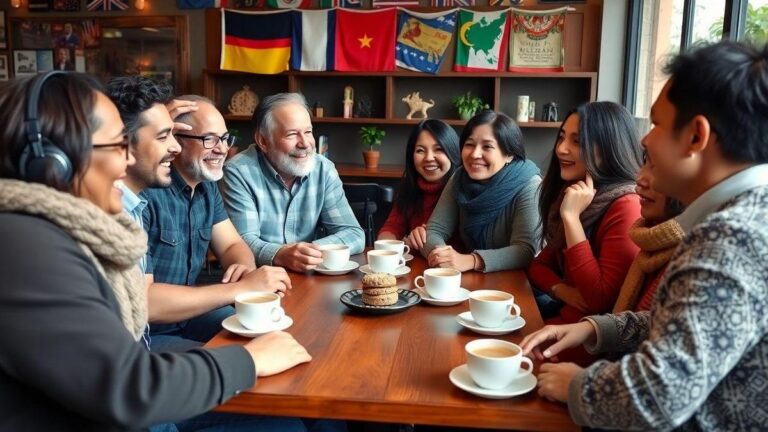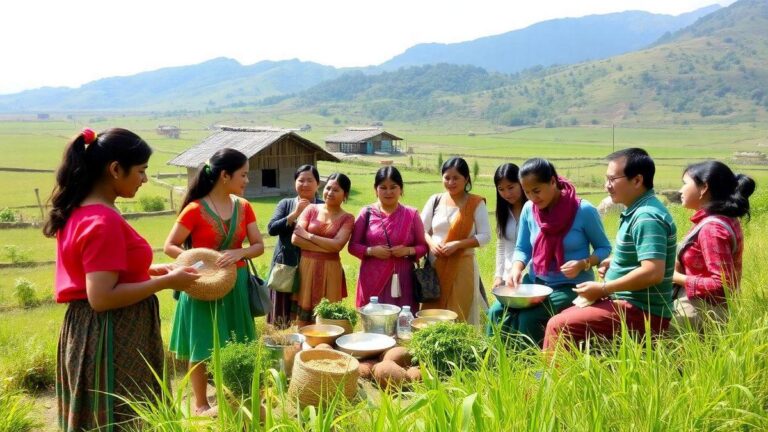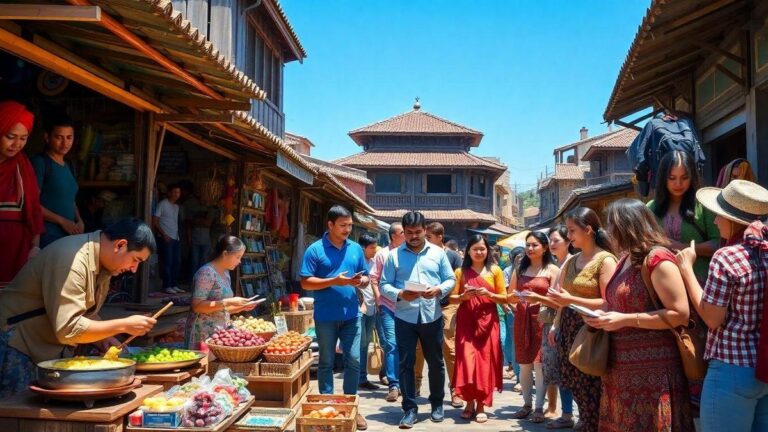Ecotourism opportunities improved by language interactions in conservation zones
Ecotourism opportunities improved by language interactions in conservation zones can make your travels more exciting and meaningful. When you dive into a new culture, language plays a huge role. It opens doors to cultural exchanges, helps you connect with local communities, and enriches your adventures, especially in nature. Imagine exploring beautiful wildlife areas while also learning about the people and their dialects. It’s a win-win for you, the locals, and the environment! Let’s explore how mastering a few words can change the way you experience ecotourism!
Important Points to Remember
- You can connect with locals through language.
- Language skills can enhance your travel experience.
- Learning a few words is beneficial in conservation zones.
- Speaking the local language builds friendships.
- Your communication efforts support ecotourism.
The Role of Language in Ecotourism Opportunities
How Language Skills Enhance Cultural Exchange
When you travel to new places, language can be your best friend. It opens doors to cultural exchange that enriches your experience. Speaking the local language helps you connect with people on a deeper level. Imagine asking a local about their favorite dish or how they celebrate a festival. These conversations can lead to friendships and unforgettable memories, showing respect for their culture!
Building Connections Through Local Dialects
Every region has its own dialects and expressions. Learning a few phrases can help you build rapport with locals. For example, if you visit a small village, using their local greeting can make them smile and feel appreciated. Here’s a quick list of phrases to try:
- Hello (in the local language)
- Thank you (in the local language)
- Goodbye (in the local language)
These small efforts can create big connections. When you speak their dialect, locals are more likely to share their stories and traditions with you. This is where the magic of ecotourism happens!
The Impact of Language on Wildlife Tourism
Language also plays a key role in wildlife tourism. When you can communicate with guides and locals, you gain insights into the animals and their habitats. For instance, a knowledgeable guide can share fascinating facts about a local species, making your visit more educational and enjoyable.
| Language Skill | Impact on Wildlife Tourism |
|---|---|
| Speaking Local Language | Better communication with guides |
| Understanding Local Dialects | Access to unique wildlife stories |
| Conversing with Locals | Insights into conservation efforts |
By engaging with locals, you can learn about conservation efforts that might not be in guidebooks. This knowledge can enhance your experience and promote responsible travel.
Benefits of Ecotourism Opportunities in Conservation Zones
Supporting Biodiversity Conservation Efforts
When you think about ecotourism, it’s not just about visiting beautiful places. It’s about helping nature while you explore! Conservation zones are special areas that protect plants and animals. By choosing to travel to these zones, you play a part in supporting biodiversity. This means you help keep different species alive and thriving.
For example, when you visit a national park, your entrance fees often go directly to protecting wildlife. This helps keep habitats safe and supports local communities. So, every ticket you buy makes a difference!
Eco-Friendly Practices for Sustainable Travel
Traveling sustainably is all about making choices that are good for the planet. Here are some eco-friendly practices you can follow during your adventures:
- Choose Green Accommodations: Look for hotels that use renewable energy and recycle.
- Use Public Transport: Instead of renting a car, take a bus or train. It’s often cheaper and better for the environment.
- Pack Light: The less you carry, the less fuel is needed for transportation!
- Support Local Businesses: Eat at local restaurants and shop at local markets. This helps the community and reduces your carbon footprint.
By following these practices, you can enjoy your travels while being kind to the Earth.
How Conservation Zones Promote Environmental Education
Conservation zones are not just places to visit; they are also learning centers. Many of these areas offer programs and tours that teach you about the environment. You can learn about local wildlife, plants, and the importance of conservation.
For instance, a guided tour in a rainforest might show you how trees help clean the air. You might also discover how certain animals depend on each other to survive. This knowledge can inspire you to make changes in your own life.
Here’s a quick look at how conservation zones help with education:
| Educational Aspect | Description |
|---|---|
| Workshops | Hands-on learning about local ecosystems |
| Guided Tours | Explore with experts who share their knowledge |
| Community Involvement | Engage with locals and learn traditional practices |
By participating in these educational opportunities, you not only enhance your experience but also become a better steward of the environment.
Immersive Experiences in Ecotourism
Engaging with Local Communities for Deeper Understanding
When you think about ecotourism, what comes to mind? It’s more than just visiting beautiful places. It’s about connecting with local communities. By engaging with the people who live in these areas, you can learn about their traditions, stories, and ways of life. Imagine sitting around a campfire, listening to a local elder share tales of the land. This kind of experience opens your eyes and heart, making your journey much richer.
Here are some ways to engage with local communities:
- Participate in Workshops: Learn crafts or cooking from locals.
- Join Community Tours: Explore the area with a local guide.
- Volunteer: Help with conservation projects or community events.
Language Interactions that Enrich Travel Adventures
Have you ever traveled to a place where you didn’t speak the language? It can feel like a puzzle with missing pieces. But when you take the time to learn a few words or phrases, it changes everything. Speaking even a little bit of the local language can break down barriers. It shows respect and opens doors to new friendships.
Here’s a simple table of useful phrases:
| English | Local Language |
|---|---|
| Hello | [Local Greeting] |
| Thank you | [Local Thank You] |
| Please | [Local Please] |
| Goodbye | [Local Goodbye] |
These small efforts can lead to meaningful connections. You might find yourself invited to a local meal or festival, creating memories you’ll cherish forever.
Creating Lasting Memories Through Cultural Engagement
Cultural engagement is where the magic happens. When you dive into local customs, you don’t just observe; you participate. Imagine dancing at a festival, learning traditional songs, or even cooking a local dish with a family. Each moment you spend engaging with the culture adds to your travel story.
Here are some ideas for cultural engagement:
- Attend Local Events: Festivals, markets, and celebrations are perfect for connecting with locals.
- Stay with Locals: Consider homestays instead of hotels for a more personal experience.
- Try Local Cuisine: Food tells a story. Taste the flavors of the region and learn about their significance.
These experiences create lasting memories, making your journey truly special.
Frequently Asked Questions
What is ecotourism?
Ecotourism is a responsible travel choice that helps protect nature. It allows you to enjoy wildlife and local cultures while supporting conservation.
How can language skills help in ecotourism?
Knowing the local language helps you connect with people. This builds trust and understanding. Language skills can also improve your experiences in conservation zones, enhancing ecotourism opportunities improved by language interactions in conservation zones.
What are conservation zones?
Conservation zones are protected areas aimed at preserving natural habitats and wildlife. You can often visit these spots through ecotourism.
How do language interactions improve ecotourism opportunities?
Language interactions open doors! They allow you to communicate better with guides and locals, leading to authentic experiences in conservation zones.
Why is it important to support local communities in ecotourism?
Supporting locals helps maintain their culture and environment. When you choose ecotourism opportunities improved by language interactions in conservation zones, everyone benefits.

Hey, I’m Paula — traveler, language nerd, and the curious mind behind znewz.com. I’ve always believed that real connections happen through words, gestures, and shared experiences — not algorithms. That’s why I created this blog: to share travel stories from around the world and explore how language helps us connect in ways that AI still can’t. Whether I’m getting lost in a tiny town or striking up a chat in a language I barely know, I’m here to show that sometimes the best moments happen when tech takes a back seat.

